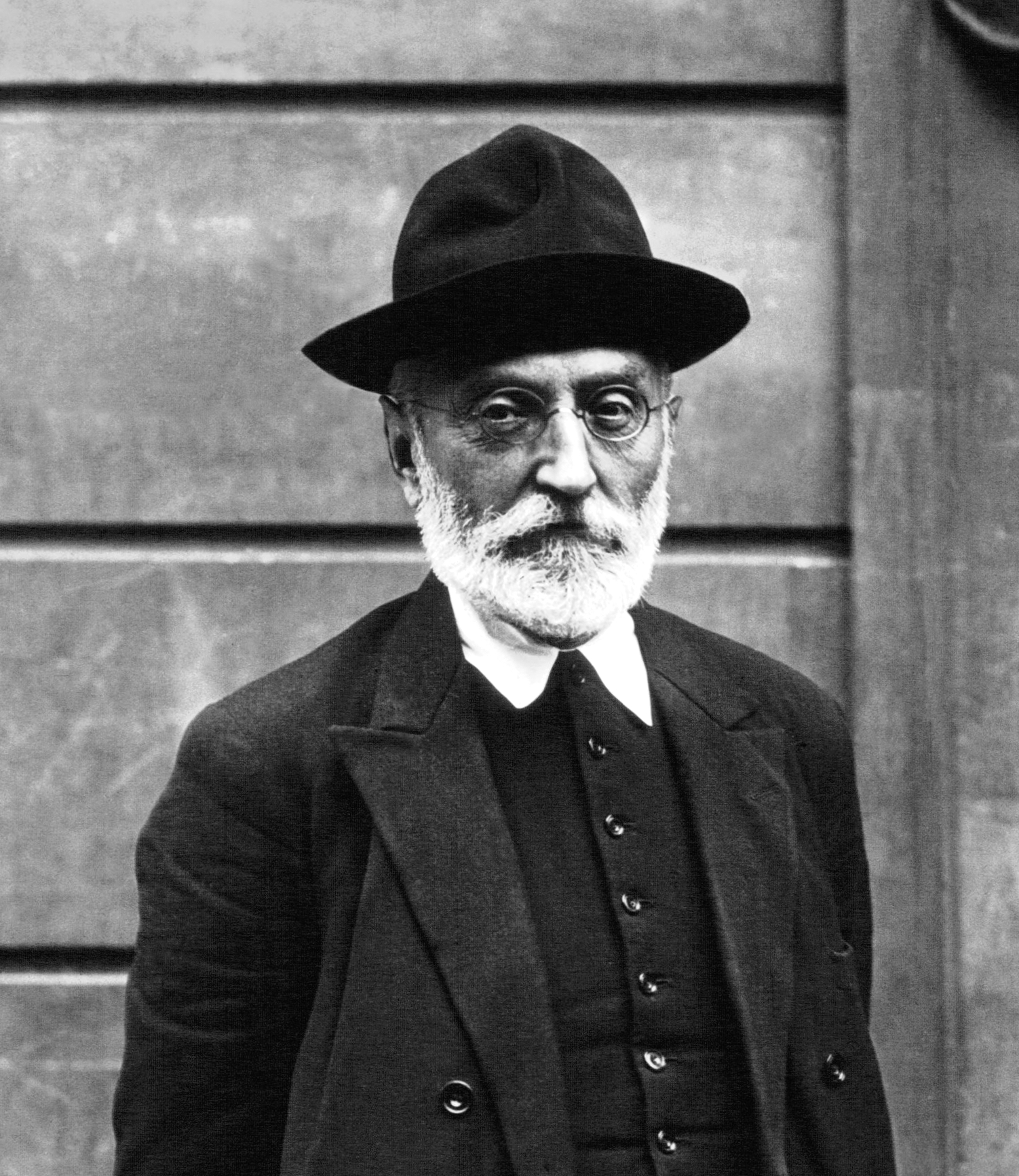Miguel De Unamuno Y Jugo nejznámější citáty
„Oženit se je velmi snadné, být ženatý - toť problém.“
Varianta: Oženit se je velmi lehké, být ženatý - to je problém.
Miguel De Unamuno Y Jugo: Citáty o lidech
A byl jsem obviňován z reakcionářství, ba i z jesuitismu. Budiž. Nu a co?
Zdroj: Miguel de Unamuno. O člověku, pro člověka, Michael Fousek http://sl.ff.cuni.cz/files/users/u3/35fousek.pdf
Miguel De Unamuno Y Jugo citáty a výroky
„Historie znamená znovu snít, co bylo.“
Dílo
Zdroj: Unamuno, Miguel de, Mlha, Odeon, Praha 1971, s. 46.
Miguel De Unamuno Y Jugo: Citáty anglicky
The Tragic Sense of Life (1913), Conclusion : Don Quixote in the Contemporary European Tragi-Comedy
The Tragic Sense of Life (1913), I : The Man of Flesh and Bone
The Tragic Sense of Life (1913), V : The Rationalist Dissolution
The Tragic Sense of Life (1913), XI : The Practical Problem
The Tragic Sense of Life (1913), X : Religion, the Mythology of the Beyond and the Apocatastasis
The Tragic Sense of Life (1913), IX : Faith, Hope, and Charity
The Tragic Sense of Life (1913), Conclusion : Don Quixote in the Contemporary European Tragi-Comedy
The Tragic Sense of Life (1913), Conclusion : Don Quixote in the Contemporary European Tragi-Comedy
The Tragic Sense of Life (1913), I : The Man of Flesh and Bone
The Tragic Sense of Life (1913), VII : Love, Suffering, Pity
How much substantial truth there is in these gloomy confessions of this man of painful sincerity.
The Tragic Sense of Life (1913), III : The Hunger of Immortality
“To believe in God is to yearn for His existence and, furthermore, it is to act as if He did exist.”
The Tragic Sense of Life (1913), V : The Rationalist Dissolution
Kontext: To believe in God is to long for His existence and, further, it is to act as if he existed; it is to live by this longing and to make it the inner spring of our action.
Kontext: To believe in God is to long for His existence and, further, it is to act as if he existed; it is to live by this longing and to make it the inner spring of our action. This longing or hunger for divinity begets hope, hope begets faith, and faith and hope beget charity. Of this divine longing is born our sense of beauty, of finality, of goodness.
The Tragic Sense of Life (1913), III : The Hunger of Immortality
The Tragic Sense of Life (1913), I : The Man of Flesh and Bone
The Tragic Sense of Life (1913), II : The Starting-Point
Ritschl, Geschichte des Pietismus, book viii., 43
The Tragic Sense of Life (1913), XI : The Practical Problem
The Tragic Sense of Life (1913), Conclusion : Don Quixote in the Contemporary European Tragi-Comedy
The Tragic Sense of Life (1913), X : Religion, the Mythology of the Beyond and the Apocatastasis
The Tragic Sense of Life (1913), Conclusion : Don Quixote in the Contemporary European Tragi-Comedy
The Tragic Sense of Life (1913), Conclusion : Don Quixote in the Contemporary European Tragi-Comedy
The Tragic Sense of Life (1913), I : The Man of Flesh and Bone
The Tragic Sense of Life (1913), IV : The Essence of Catholicism
The Tragic Sense of Life (1913), IV : The Essence of Catholicism
The Tragic Sense of Life (1913), VII : Love, Suffering, Pity
The Tragic Sense of Life (1913), VI : In the Depths of the Abyss
The Tragic Sense of Life (1913), V : The Rationalist Dissolution
